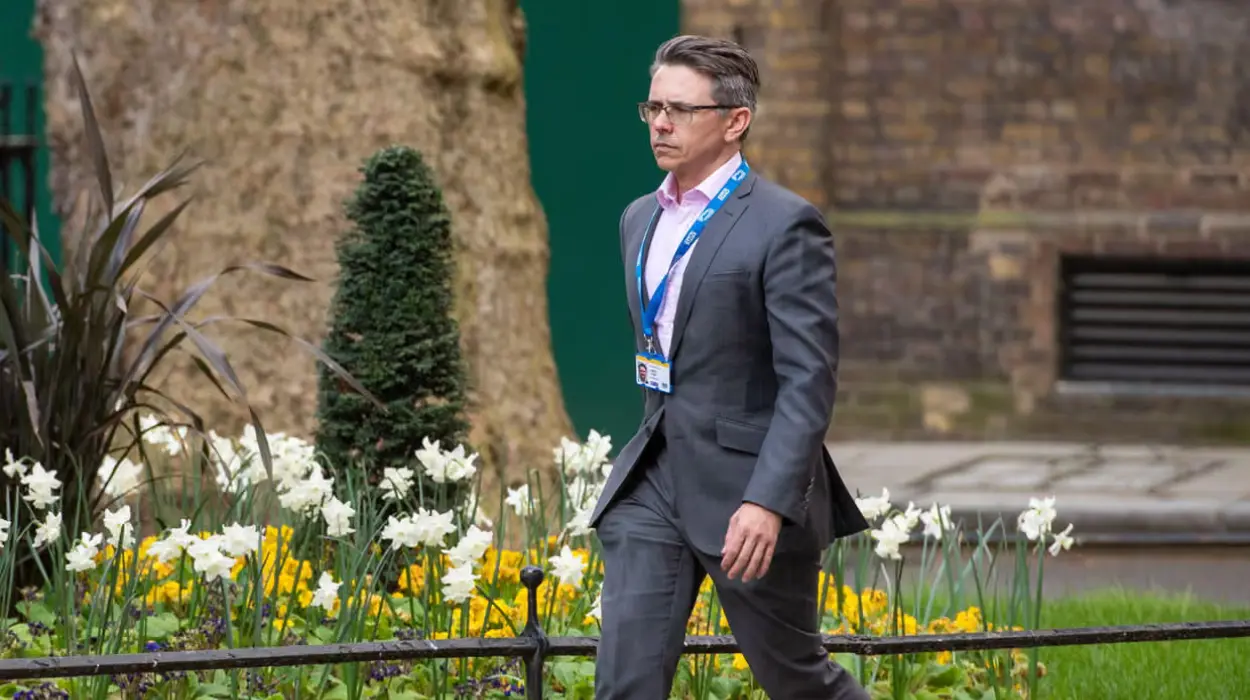UK (Parliament Politics Magazine) – Labour’s ex-communications chief James Lyons revealed he helped rewrite the 2024 manifesto while still working at TikTok in evenings and weekends.
As reported by The Guardian, a TikTok executive said he helped draft Labour’s manifesto while still employed at the Chinese-owned firm.
What did James Lyons say about helping Labour draft the manifesto while at TikTok?
James Lyons resigned last week as British Prime Minister Sir Keir Starmer’s director of strategic communications. He revealed on LinkedIn that he had been asked to assist in drafting the party’s election pledges while still working for the social media company.
His involvement in shaping the manifesto raises questions over Labour’s ties with major tech firms, which have maintained access to Keir Starmer’s senior ministers.
In his LinkedIn post, Mr Lyons focused on his 11-month tenure as the government’s director of communications. He used the post to disclose for the first time how he joined Mr Starmer’s initiative.
Mr Lyons said,
“The ask to enter Number 10 came out of the blue. I had helped Labour during the election by rewriting the manifesto to make it more compelling (and remove bear traps where I could).”
He added,
“To ensure security this was done, in spare time over evenings and weekends, on a laptop that didn’t leave the party HQ. Rightly, there was never any promise of a job.”
After a career at the Mirror and Sunday Times, Mr Lyons began his tenure as head of European corporate and policy communications.
During his tenure, he was regarded as a strong defender of the company, especially in response to concerns that Chinese ownership could compromise data security for Western users.
Mr Lyons held the position until the election, later joining Labour to work on the manifesto. Sources say his task was editing the text for clarity and impact, rather than shaping policy.
He stated in his post,
“Social media now rivals broadcasters and newspaper readership has fallen by around 75% since I became a lobby hack [journalist] 25 years ago.”
The ex-chief added,
“Lots of Whitehall comms haven’t changed much in eight years since I left SW1 – and some have barely changed since I arrived in 2000. At Number 10, with the New Media Unit and a renewed focus on consumer outlets, we were going where the voters are.”
What did Labour say about volunteers and the election?
A Labour spokesperson stated,
“Thousands of people volunteered their spare time during the general election to help Labour end 14 years of Tory chaos. All of this was done in their own time.”
How did the Conservatives respond to Labour’s China links and the manifesto controversy?
A Conservative source stated,
“The Labour government has been cosying up with China since day one, the threat it poses to our national security be damned.”
They added,
“Now it emerges that a senior figure working for a Chinese firm was a central author of Labour’s manifesto. Labour … have serious questions to answer.”
What did Labour’s manifesto say about technology and social media?
Before the election, Labour’s manifesto focused on how technology could contribute to the economy, with limited attention to social media regulation.
The party’s only policy likely to affect TikTok was a pledge to “build on the Online Safety Act,” with the aim to “explore further measures to keep everyone safe online, particularly when using social media.”
The government continues to block TikTok on official devices over concerns that Chinese authorities might access sensitive data. It now maintains an official account on the platform.
Since taking office, Labour has been criticised for its efforts to strengthen ties with Beijing and the number of meetings its senior ministers have held with leading technology firms.
It was reported in May that the then technology secretary, Peter Kyle, held significantly more meetings with technology companies than his predecessor, Michelle Donelan.
Over six months, Keir Starmer held 28 meetings with technology companies while pushing for artificial intelligence and advanced technology to address challenges in public service delivery.
Earlier this week, the Prime Minister reiterated the message at the first meeting of his new cabinet.
He told ministers,
“It was incumbent on the government to go further and faster in reducing the size of the civil service, adopting technology and AI across public services.”
Key details about Keir Starmer’s cabinet reshuffle
David Lammy became Deputy Prime Minister and Justice Secretary, replacing Angela Rayner. Yvette Cooper moved to the Foreign Secretary, and Shabana Mahmood became Home Secretary, making all three top offices held by women.
Home Office changes included Angela Eagle and Diana Johnson moving departments, with Alex Norris and Sarah Jones appointed as ministers of state. Pat McFadden leads the new Work and Pensions “super ministry,” Steve Reed is Housing Secretary, and Peter Kyle is Business Secretary.


